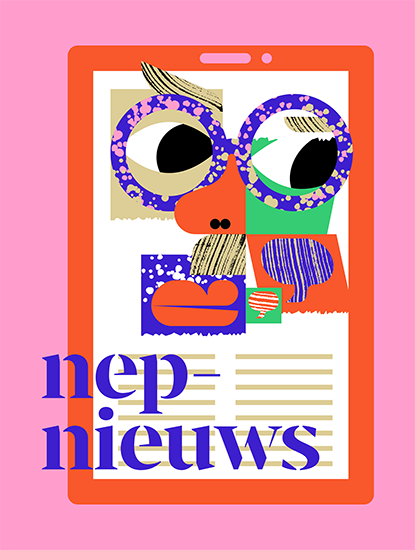What can parents do?
Recognising fake news isn’t just a challenge for young people. Adults can also have trouble telling fact from fiction. But youngsters seem to think it’s their parents’ job to teach them some basic knowledge about (fake) news.
Here’s what parents can do:
- Talk to youngsters about news
To understand how fake news works, you first have to understand how real news works. For example, parents can teach their children about how news is made and about how journalists need to stick to certain rules. It also helps to talk about the daily news to make sure youngsters know what’s going on in the world.
- Encourage them to keep reading
Social media are an important source of news for youngsters, but the Artevelde study also showed that only half of youngsters actually click on the news articles they encounter to read beyond the title. And even then they tend to skim. By reading news articles thoroughly, youngsters will be better equipped to estimate whether they are real or fake.
- Give them a few tips
Not everything you read on the internet is true. Everyone knows that, but what should you do in times of doubt? There are a few simple fact-checking tips you can apply, but most youngsters seem to rely instead on their gut feeling. Parents can encourage them to check the sources of a news article, to research the name of the author, to see if the news is published in other places, etc.
What can teachers do?
61% of youngsters attach great importance to the opinion of teachers about fake news. 53% also count on factual information from teachers to be able to gauge if news is real or fake. Questions like ‘What is fake news?’, ‘How does it spread?’ and ‘How can you recognise it?’ should be an essential part of lessons around news literacy in school.
Luckily, there are plenty of educational resources to help you with that:
This EDUbox by VRT NWS, Mediawijs, Artevelde college and imec teaches secondary school students to recognise fake news playfully. With help from a teacher, students discuss current topics. The corona version of the box and the interactive video lesson for home schooling purposes are useful additions.
The CritiCat is a detective cat that teaches children to debunk fallacies and fake news. Teachers can use the stories contained and the inspirational guide, but the organisation can also come to school to provide tailored workshops and courses.
